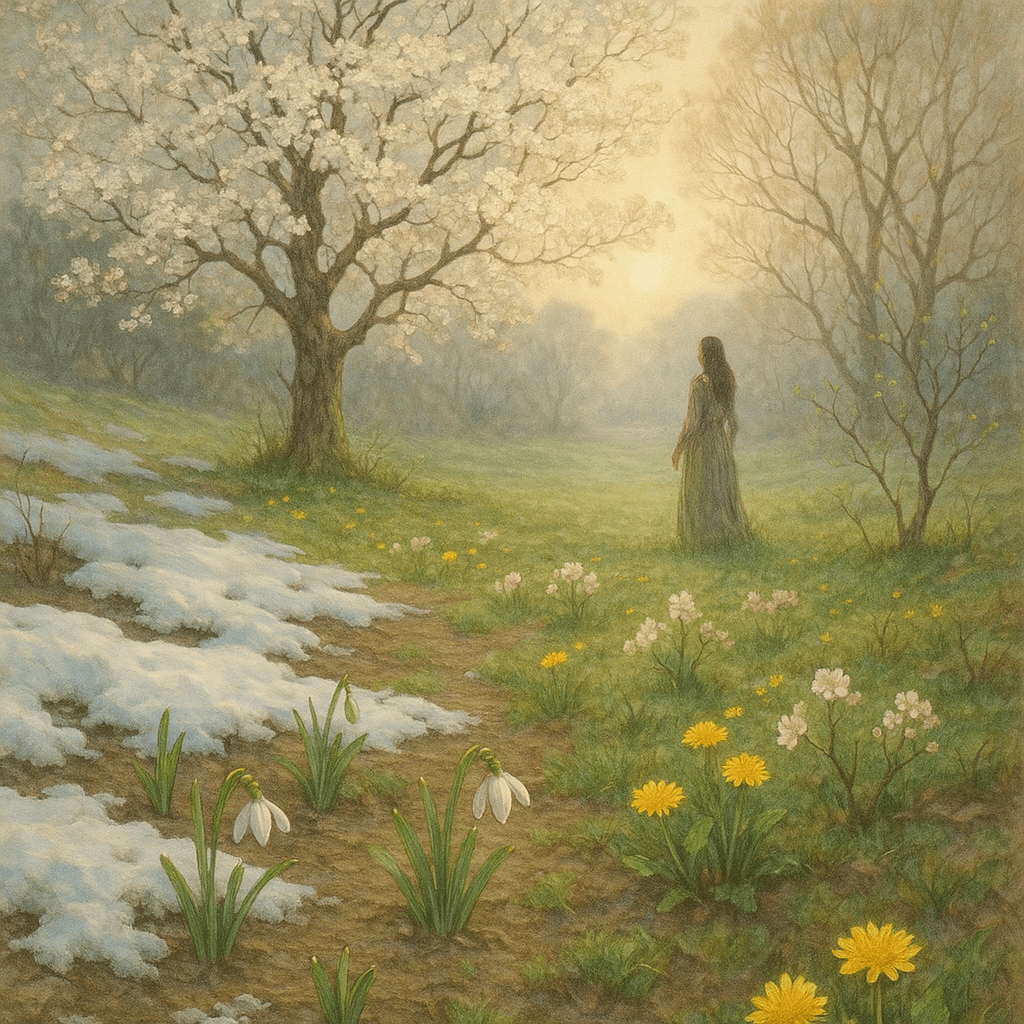Understanding Ourselves Through Nature's Rhythms and Mysteries

To touch the earth is to share in her mystery, to know her cycles is to know yourself. — Chief Dan George
—What lingers after this line?
One-minute reflection
Where does this idea show up in your life right now?
Earth as a Source of Wisdom
Chief Dan George’s words invite us to approach the earth not merely as scenery, but as a living companion whose mysteries reflect our own. The touch of soil, the feel of a stone, or the caress of a breeze all become pathways leading us toward deeper self-awareness. This idea echoes Indigenous philosophies worldwide, which teach that humanity and the environment are intimately intertwined, each shaping the other over time.
Cycles of Nature as Mirrors
Transitioning from earth’s mystery to her cycles, we find profound lessons in the recurring patterns of nature—the changing seasons, the lunar phases, the migration of animals. Observing these rhythms, such as spring’s renewal or winter’s rest, allows us to recognize similar phases within ourselves. In *Braiding Sweetgrass* (2013), Robin Wall Kimmerer describes how engaging with these cycles nurtures introspection and balance, reinforcing the connection between personal and planetary well-being.
Cultural Practices and the Land
Building upon this, many cultures have rituals designed to foster unity with the land. For example, the potlatch ceremonies of Pacific Northwest peoples, as described in anthropological studies, honor the ebb and flow of abundance, mirroring natural generosity and renewal. These traditions underline that community well-being is inseparable from the health of the environment, further linking individual identity to the land’s vitality.
Lessons from Ecological Observation
Scientific ecology also reinforces the wisdom of knowing nature’s cycles. By tracking plant growth, animal habits, or climate patterns, ecologists uncover the interdependence of life. This mirrors personal growth, where periods of activity are followed by rest and renewal. The reciprocal relationship Chief Dan George alludes to thus finds validation both in traditional knowledge and in contemporary science.
Towards a Harmonious Existence
Ultimately, recognizing our place within earth’s grand cycles encourages humility and mindfulness. As we learn from the land and its mysteries, we cultivate respect not only for nature but also for the depths within ourselves. This holistic understanding fosters a more sustainable, meaningful way of living—one where, by embracing the earth, we truly come to know who we are.